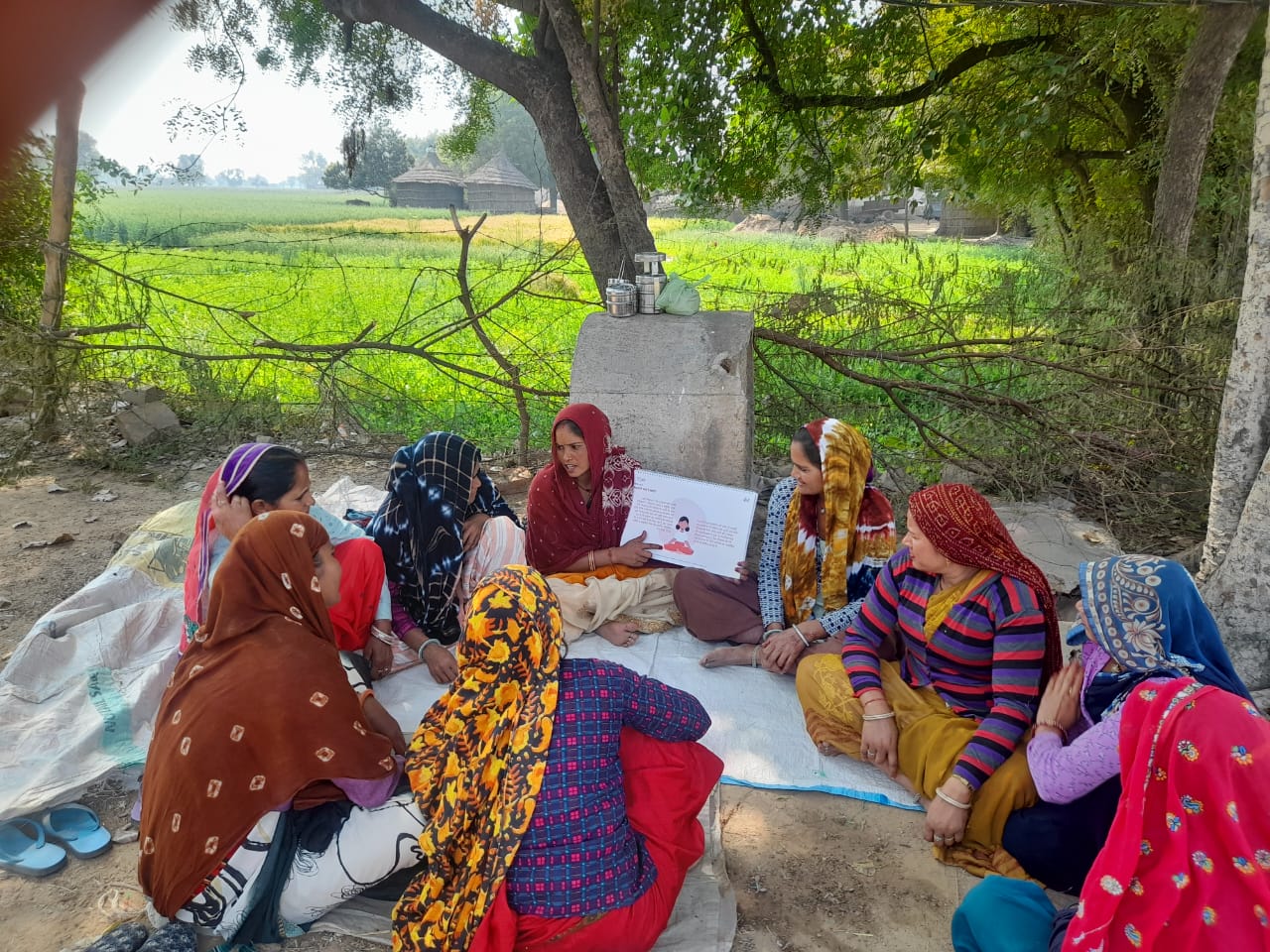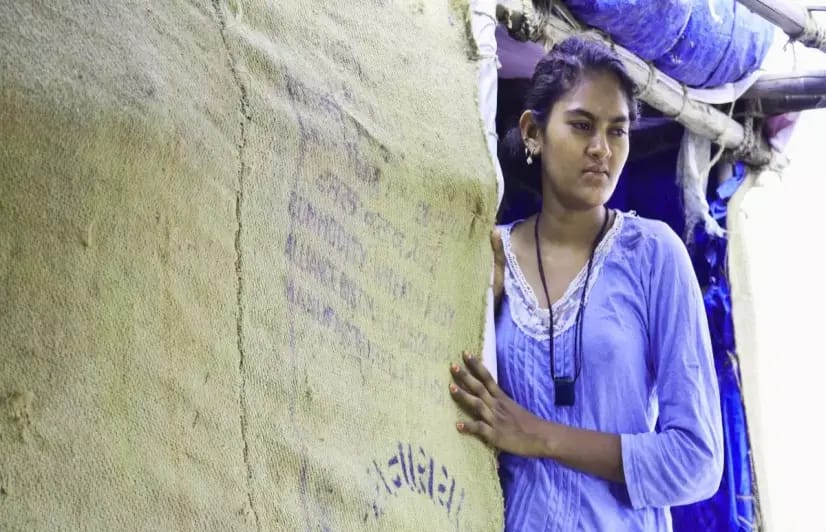It has only been a few weeks since a young 12-year-old girl was killed by her own brother in Ulhasnagar, Maharashtra. Why? Her brother, clueless about menstruation, jumped to the conclusion that his sister was engaging in sexual activity due to the presence of blood stains on her clothes. When questioned, due to the lack of her own awareness and the taboo around menstruation and menstrual health, the girl was unable to formulate an answer as to why there were stains on her clothing. This misconception about the biological process led to the 30-year-old man subjecting his sister to physical abuse and torture.
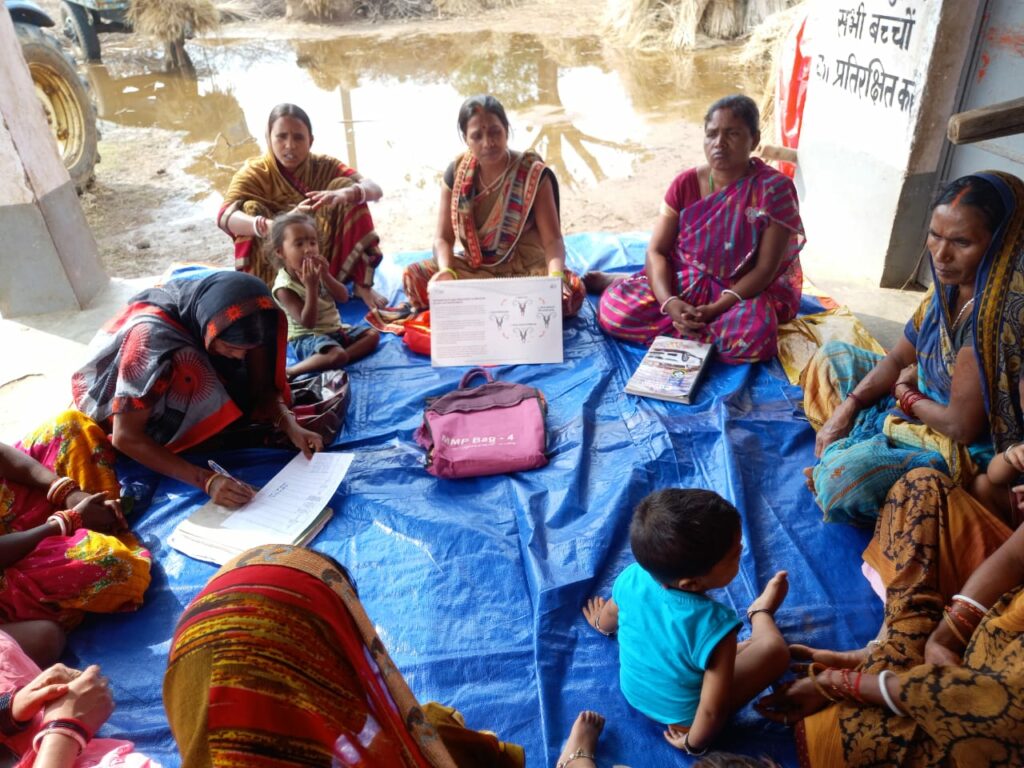
Reports suggest that tongs were used to inflict severe burns upon her body, along with relentless kicking and punching along her neck, face and back. She was eventually brought to a hospital where she succumbed to her injuries and passed away. A young girl had to die a very painful death because she did not know that she was menstruating. This incident revealed two very persistent problems that Indian society faces today. Firstly, the patriarchal patronage that acts as the guardians of women and is therefore entitled to control and punish their bodies as they see fit and secondly, women themselves lack basic information, knowledge and awareness about the natural biological processes of their bodies.
With decades of patriarchal gender roles that have subjugated women, physically and mentally, the lack of awareness and stigma attached to women’s menstrual cycles has cemented the negativity that surrounds menstruation today. This antipathy, the lack of knowledge and awareness puts girls in a position where they experience deeply negative feelings such as shame and low self-esteem based on their menstruating bodies.
Women often groan in frustration due to the ongoing cramps experienced during the onset of a menstrual cycle, ‘Oh, it feels like someone is kicking my uterus!’ or ‘It feels like I’m going to die with pain!’. Well, it happened.
A young girl died because of her period. With decades of patriarchal gender roles that have subjugated women, physically and mentally, the lack of awareness and stigma attached to women’s menstrual cycles has cemented the negativity that surrounds menstruation today. This antipathy, the lack of knowledge and awareness puts girls in a position where they experience deeply negative feelings such as shame and low self-esteem based on their menstruating bodies.
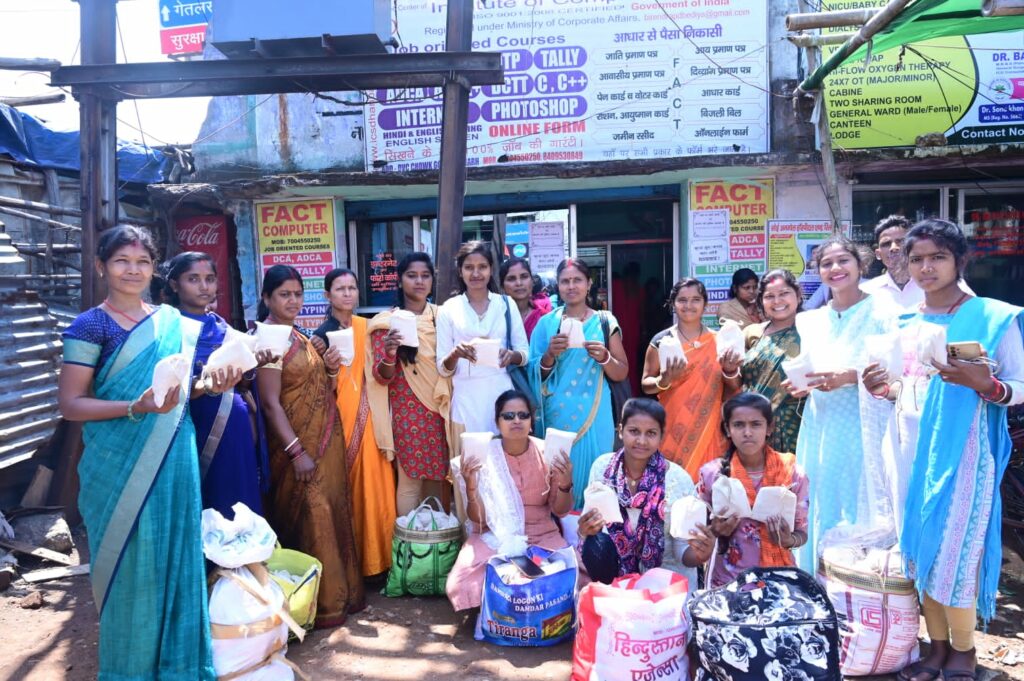
This leads to an invisibilisation of women’s voices, and agency on their bodies and creates an environment of shame and stigma around menstruating. This incident shows that discrimination against menstruating women is widespread in India, where the taboo around menstruation cements the idea that periods are impure. The brother’s anger and violence against his sister symbolise the general aversion of the entire community and culture to having an informed mindset and awareness of the menstrual cycle. Orthodox and regressive ideologies, values and beliefs circulate and influence a majority of the population. It’s 2023 and we are seemingly headed for a ‘gender inclusive’ future while being stuck in the past.
71% of the adolescent girl population in India are lacking knowledge as well as access to information about the menstrual cycle until they actually hit puberty, according to UNICEF’s research. In rural areas especially, the topic of menstruation is swathed with myth and mystery. It is perceived as dirty, sinful, impure and unholy. There is a culture of shame and embarrassment tied to it hence women are prevented from performing basic tasks such as entering their own house, preparing food in the kitchen or going to the temple.
According to UNICEF’s research, 71% of the adolescent girl population in India lack knowledge and access to information about the menstrual cycle until they actually hit puberty. In rural areas especially, the topic of menstruation is swathed with myth and mystery. It is perceived as dirty, sinful, impure and unholy. There is a culture of shame and embarrassment tied to it hence women are prevented from performing basic tasks such as entering their own house, preparing food in the kitchen or going to the temple. When young girls are prevented from going about their daily lives while menstruating, it is only natural that they themselves will avoid and ignore the topic of discussion due to the negative external feelings from society.
Not only this but due to the lack of access to proper sanitary pads or any sort of menstrual products, 1 in every 5 girls drops out of school. This greatly affects and deters the future of these young girls as it immediately leads them down the same path of illiteracy, child marriage and the social, economic and mental subjugation of most women in their community. It is a vicious cycle, which can be broken, simply with the proper awareness and access to menstrual products. The lives that these girls lead can be instrumentally changed, uplifting not only females but the entire community, society and economy.
Stemming from the urgent need to destigmatise menstruation, DEF launched the ‘Digital Didi’ programme, along with Digikargha, backed by big supporters such as Amazon, Accenture and the US India Policy Institute, to create awareness among adolescent girls and women in rural and semi-urban India about misconceptions and misinformation surrounding menstruation, and to communicate authentic information, facilitate access to sustainable menstrual products and better health infrastructure.
Stemming from the urgent need to destigmatise menstruation, DEF launched the ‘Digital Didi’ programme, along with Digikargha, backed by big supporters such as Amazon, Accenture and the US India Policy Institute, to create awareness among adolescent girls and women in rural and semi-urban India about misconceptions and misinformation surrounding menstruation, and to communicate authentic information, facilitate access to sustainable menstrual products and better health infrastructure.
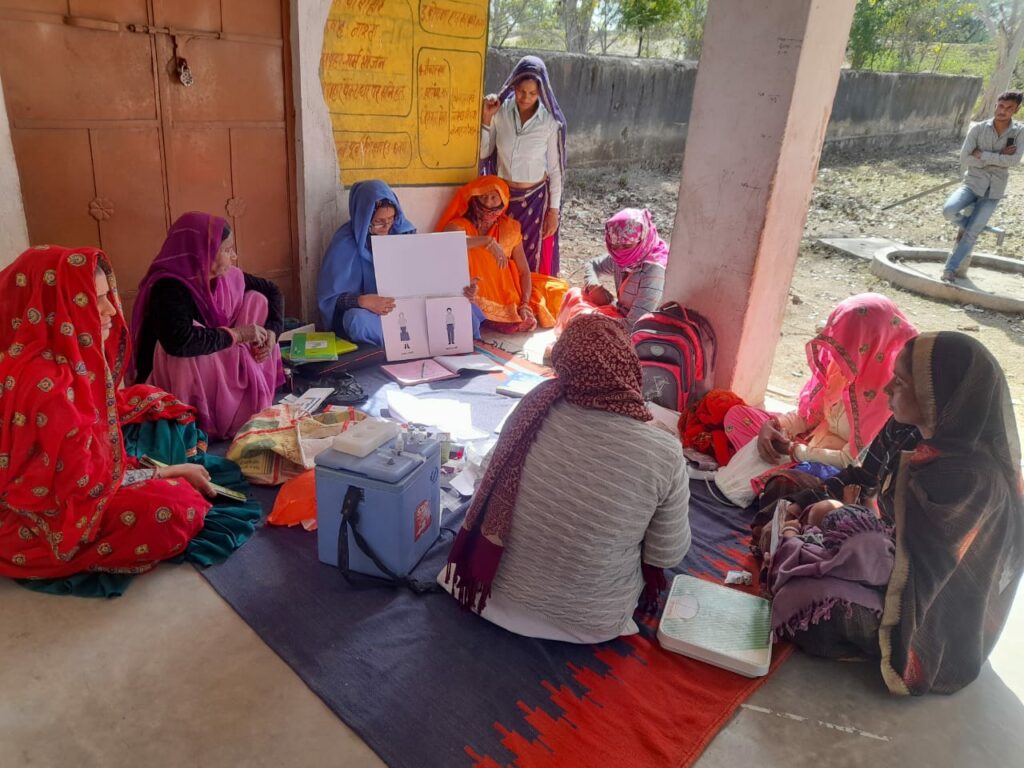
DEF is an NGO with 1000 digitally equipped centres across India, which recognises rural women to be the changemakers of society and provides them with opportunities and initiatives for their upliftment. Digikargha was an initiative born out of DEF itself, working with Indian weavers and artisans across the country, integrating their system online so that they can diversify the market and sell their products to a wider demographic.
‘Digital Didi’ is a pan- India program which is unique with the aim to create an understanding of menstrual health where there is inculcation of a sustainable as well as a digital literacy initiative in the program. There is the production of the reusable ‘SmartPad’ to meet their sanitary needs as well as the enabling of digital literacy to provide them with opportunities, careers and entrepreneurial skills. DEF has worked towards digital empowerment for the last 20 years in India, implementing various programs.
‘Digital Didi’ is a pan- India program which is unique with the aim to create an understanding of menstrual health where there is the inculcation of a sustainable as well as a digital literacy initiative in the program. There is the production of the reusable ‘SmartPad’ to meet their sanitary needs as well as the enabling of digital literacy to provide them with opportunities, careers and entrepreneurial skills. DEF has worked towards digital empowerment for the last 20 years in India, implementing various programs. With ‘Digital Didi’, there have been 350 villages impacted, 350 women entrepreneurs, and 35,000 women and adolescent girls trained on digital literacy in 24 states and 135 districts.
DEF conducted a baseline survey in October 2022 to assess the degree of access to menstrual products, information, digital devices and internet amongst respondents of different age groups, occupations and educational qualifications with around 90% hailing from rural areas. When asked to self-assess if they were aware of ‘safe’ menstrual practices, 830 responded yes while a high 1625 responded no. Respondents often specified issues such as irritability, stomach issues, body ache, and sleep disturbance. Due to health issues as well as the societal stigma, 18% responded they keep from visiting friends and family, 13% keep from washing the body, 82% avoid religious ceremonies, 20% do not touch stored food/cook, and 16% avoid exercising.
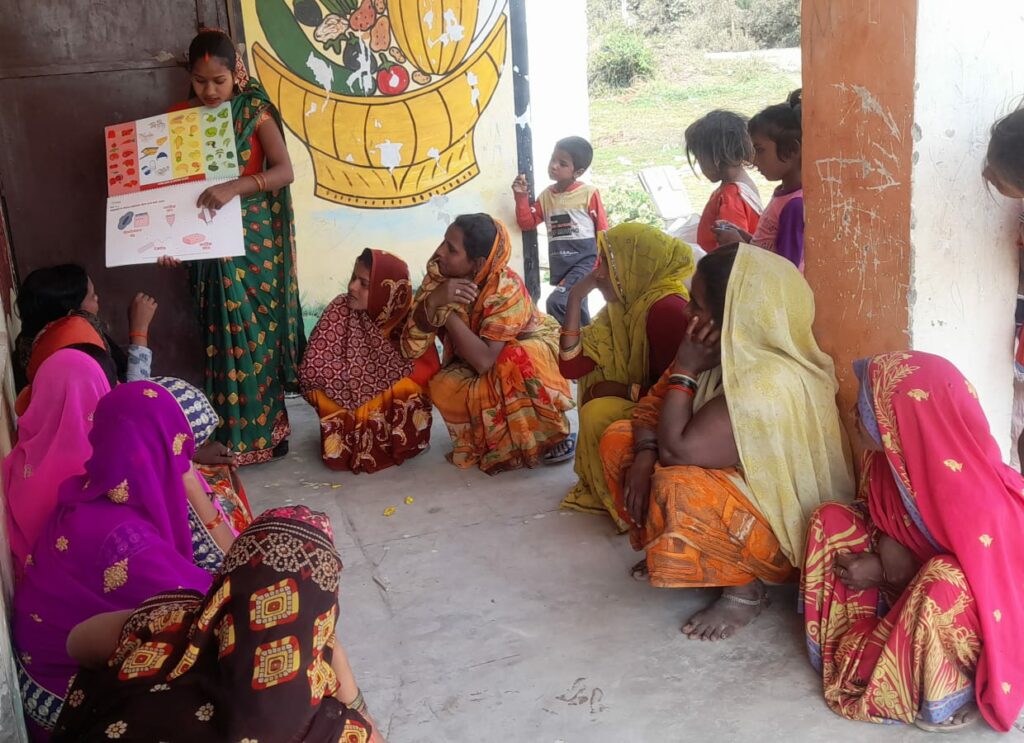
The dominant choice of adsorbent was the commercially available pads, disposing of them along with household waste. A solid 58% owned a smartphone, while 42% did not. Respondents were asked whether they are aware that their mobile phone can be used as a learning tool. Of the 42% responding “no”, a sizable section, 25% are still in school. This indicates a possible negative attitude towards mobile phone ownership at the community level. Of the 40% (986/2455) respondents who have used the internet to access information on health issues, 80% reportedly found it useful. However, a majority reported being inadequately aware of digital banking methods.
As is visible from the survey, the issue is not the topic of menstruation, but the lack of information surrounding the topic of menstruation. Women need to understand that while it is a physical, bodily process, it affects one’s behaviour and mental health as well. School Absenteeism is common among female students due to the types of absorbent used, the lack of amenities or privacy at school or simply the restrictions imposed on girls during menstruation by their own families. Due to the specified health issues mentioned above, students often feel distracted, nauseated and therefore unable to concentrate.
Similarly, in the workplace, women’s productivity is also affected. Women feel uncomfortable or simply unsupported by their managers or supervisors and therefore do not take up the issues they face at their workplace. In rural areas, the use of hygienic methods and absorbents is far less than that of rural areas.
These poor menstrual hygiene practices can cause rashes, skin irritants and foul odour. The spiritual and religious dogmas behind it have no substance or cause and should not hinder them from going about their daily lives. Although there seems to be a bit of a wariness to mobile phones, the majority do possess them, therefore the digital initiative and spread of information online is indeed an efficient, relatively accessible method. It also provides women with a sense of being more comfortable with technology, tackling yet another issue and enabling them to be more independent both financially and digitally.
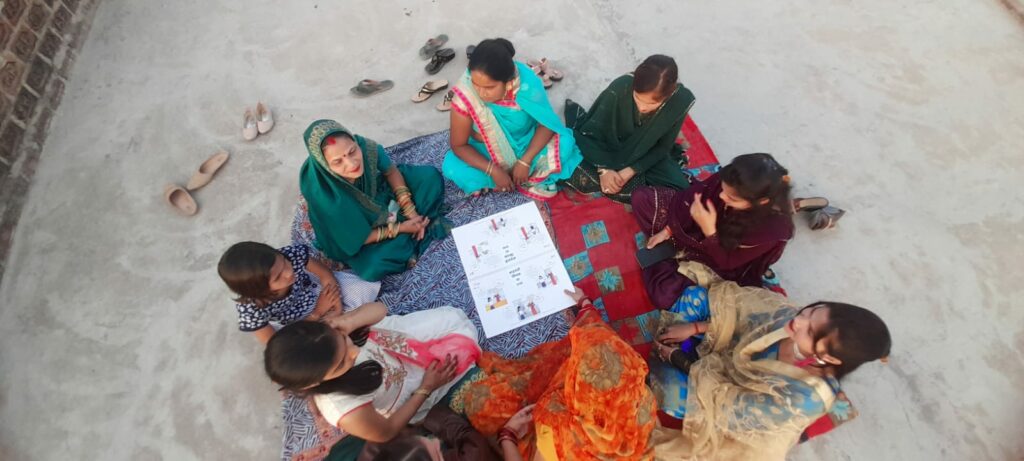
Everyone has had the slightly mortifying experience of going to a chemist to buy pads, with a poker-faced pharmacist who tries his best to be subtle and then wraps the package in an airtight swaddle of newspapers, a brown bag and then another bag of the chemist. Yes, subtle. This shame and second-hand embarrassment should not be an issue, unfortunately, it is. Here is where the ‘SmartPad’ is revolutionary. Not because it has super discreet packaging or a cloak of invisibility to prevent the so-called ‘shame’ of using a sanitary pad, but because of the multiple benefits and assistance it provides to the user, motivating women to actually get it for themselves instead of hiding quietly in their shame.
The SmartPad is an organic, chemical-free cloth pad which is reusable and easily disposable. It is hygienic, needs to be washed during the cycle and is environmentally friendly. Being made out of cotton, it is gentle on the skin, preventing odour, rashes or skin irritants. Now, what makes the SmartPad smart? Along with theaccess to the products, the SmartPad is not just a sanitary napkin, but also a window to access information.On the SmartPad, there is a QR code which can be scanned and grants access to 100 hours of digital and financial literacy.
The SmartPad is an organic, chemical-free cloth pad which is reusable and easily disposable. It is hygienic, needs to be washed during the cycle and is environmentally friendly. Being made out of cotton, it is gentle on the skin, preventing odour, rashes or skin irritants. Now, what makes the SmartPad smart? Along with the access to the products, the SmartPad is not just a sanitary napkin, but also a window to access information. On the SmartPad, there is a QR code which can be scanned and grants access to 100 hours of digital and financial literacy.
The LMS chatbot also provides information on citizen services, entrepreneurship modules and health-related topics. One can see how this idea has far-reaching effects by not only tackling one but three of their aims, by providing access to products as well as information all while maintaining a sustainable initiative. These life-changing and progressive ideas are all put into one sanitary pad. A product associated with shame, bringing a new face to the game.
The program holds activities like community meetings, training through LMS chatbots, awareness camps, training, counselling sessions and smart pad distribution. It aims to create ‘Health SoochnaPreneurs (HS)’ who will provide other women with SmartPads and digital literacy. Through discussion and meetings, women can relate to their experiences of being ashamed and even scared of their menstrual cycles. By this means of discussion with other women, they can overcome the stigma and negativity once associated with the process and instead accept and normalise the natural process of life.
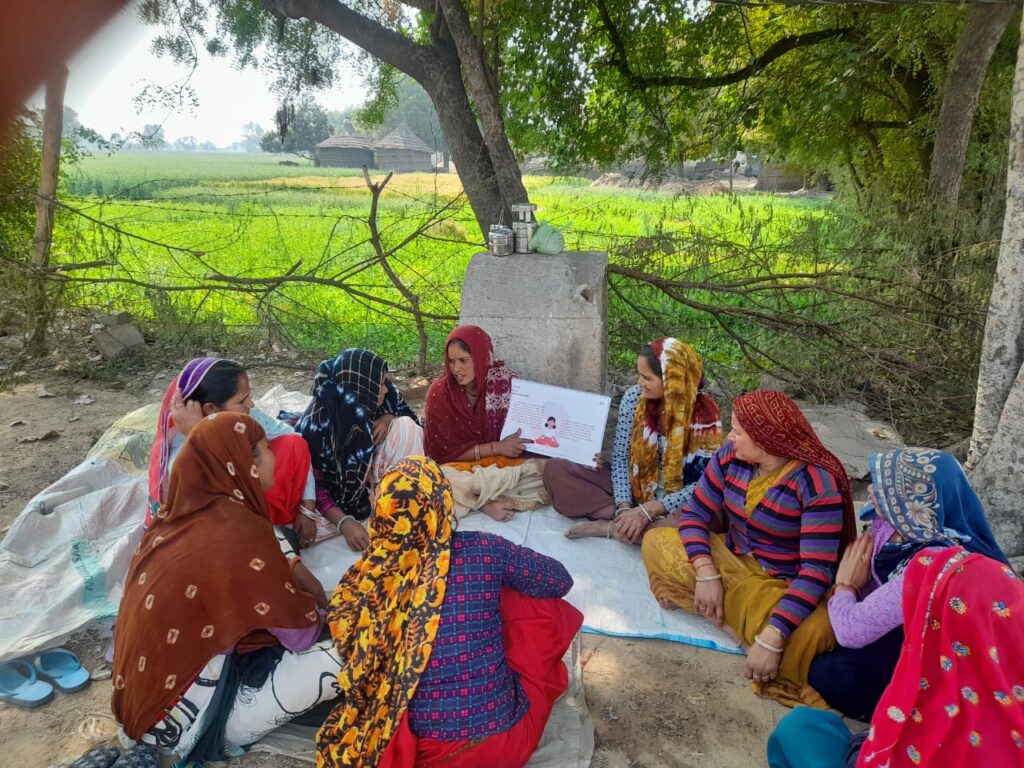
By introducing women of rural and semi-urban areas to new digital tools, they too can become more self-reliant and financially independent in the 21st century all through a process which once brought shame to their households. The irony behind the situation is commendable, if not laughable which makes the initiative even more appealing. The training ensures that the ‘HS’ can reach the conclusion of understanding the problems faced by women when menstruating and therefore find solutions within their own communities by implementing the Digital Didi programme.
Digital Didi initiative is provided with training kits and SmartPads, opening up the discussion around health-related issues of menstruation in society.
This article is part of the A-code partnership between FII and DEF. DEF is active on Facebook, Twitter, YouTube, LinkedIn, Instagram and you can check their website for more details.
